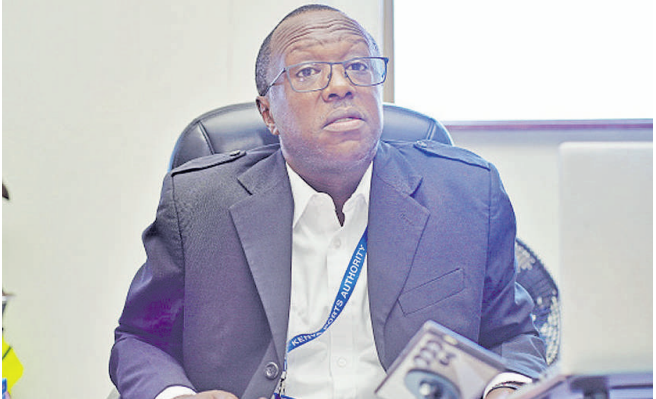
GICHERU: Fight for integrity in face of corruption at KRA customs
The work of reforming KRA customs is slow and incremental
They safeguard society’s security by preventing the smuggling of illegal goods
In Summary

Customs officials are often associated with tax collection at ports of entry, but their job extends far beyond that.
Their crucial responsibility lies in protecting the country from illicit goods while facilitating legitimate trade.
Globally, customs officers play a vital role in safeguarding society’s security by preventing the smuggling of illegal goods that threaten safety and stability.
Smuggling not only undermines fair trade, but also fosters insecurity, enabling the proliferation of counterfeit and substandard products that can harm individuals and the economy.
Since its inception in 1953, January 26 has been designated as International Customs Day, a celebration of customs officers worldwide.
Kenya marked this day on Friday, recognising the men and women safeguarding borders, airports and ports against illicit trade.
Paul Nyaga, the customs and border control manager at the Port of Mombasa, has served at the Kenya Revenue Authority for more than 20 years.
His career spans postings at the Moyale border, Jomo Kenyatta International Airport and now the Port of Mombasa.
Nyaga has been working in the crucial department of customs and after his tour of duty, he said he will write a book about his time at KRA.
“There is no job that is more fulfilling than the job of a customs officer, because every day, you get new experiences, and things are always evolving, and the technology is always evolving, and you get to learn the art of managing different scenarios. I will write a book about my days at customs,” he says.
Over the years, Nyaga and his team have been fighting the perception that customs officials frustrate trade due to being very strict on the border entries.
“The biggest role of customs is trade facilitation. The Commissioner of Customs has structured this department. It has one of the major divisions in customs - a trade facilitation division, which is headed by a deputy commissioner who reports directly to the Commissioner of Customs,” said Nyaga.
He said they work 24 hours to facilitate clearance of consignments.
Their second role is the protection of society.
“Here we ensure harmful consignments, or what we call prohibited and restricted items do not get into the country. I can assure you, all containers that come through the Port of Mombasa, are 100 per cent scanned,” he said.
He said they do the verification to ensure zero chances of prohibited or restricted goods coming into the country.
“So, we scan, and after we scan, we have image analysts, so that if there is anything that is prohibited or anything that is not wanted within our borders, we can take action as custom,” Nyaga said.
Nyaga said over time they have intercepted a lot of contraband.
“We have intercepted a lot of prohibited and restricted goods, including drugs, pornographic and sex toys. Customs officials work closely with other government agencies, that includes Port Health, DCI, Kebs to ensure that these goods do not find their way into the market,” he said.
Nyaga said when they come across drugs, they call in the anti-narcotics unit of the DCI.
“The Customs Commissioner seizes the goods; we issue something we call a seizure notice. The other agencies will only draw samples to take to maybe the government chemist or the labs to analyse the suspected narcotics.”
Tabitha Wanyama, the manager of customs warehouse at the port, has been working with KRA since 1989, first under the Ministry of Finance before they were fully absorbed into KRA.
“It has been quite fulfilling because
customs processes are dynamic.
In customs, you’re dealing with
different stakeholders; you’re dealing
with taxpayers, clearing agents, also
your own staff,” Wanyama said
during the interview.

The work of reforming KRA customs is slow and incremental